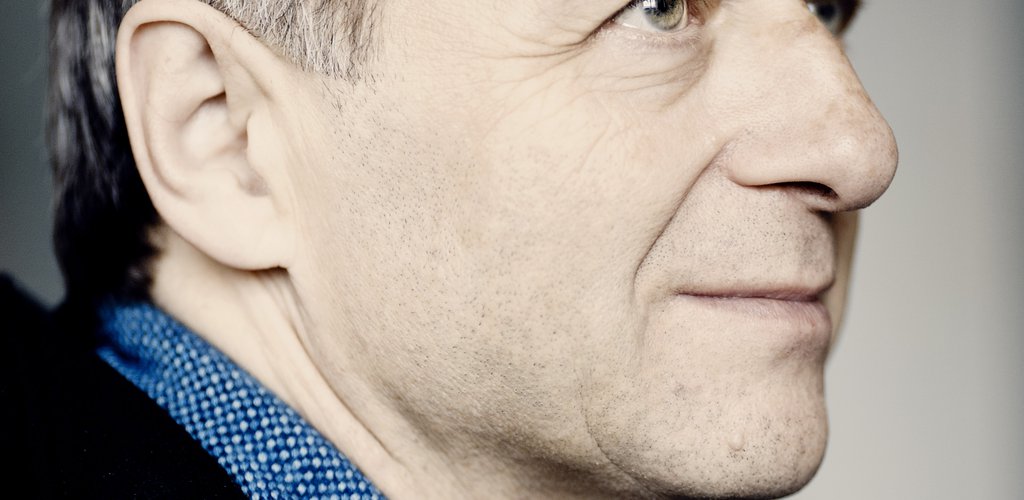“We must state out loud and without hesitation, that on Tuesday and Wednesday there was no better orchestra on the planet than the Budapest Festival Orchestra.” On both nights the ensemble {…} played works by Haydn and Stravinsky at Avery Fisher Hall, under the inspired leadership of Iván Fischer.”
– The New York Times (Steve Smith)
The Budapest Festival Orchestra, which is ranked among the best three classical orchestras in the world, has been operating with extraordinary success for over thirty years. What is their secret?
I.F.: Well, three is an exaggeration. I know only of one survey which ranked the Budapest Festival Orchestra among the best ten orchestras in the world, and this is already a great honour. Many have already searched for the secret, and studies on our methods have been made in several countries. Our success consists of many small parts, but perhaps the bottom line is that we are the most innovative orchestra in the world. We come up with new forms of concert, and have a new system of operation and a new orchestral mentality as well. They do imitate us, but we don’t mind.
How do you communicate with orchestras as a conductor, and how do you convey your ideas of a particular piece of music?
I.F.: I consistently raise the bar ever higher, though in a friendly manner, with humour, impacting on imagination, using many similes, but I never do it strictly and never become personal.
Musicians keep saying you need to “mature” for certain composers and works. Do you agree?
I.F.: Yes. You are more receptive to other things when you are young, for example enthusiasm, dramatic tension and lyricism. When you grow older, nostalgia, melancholy, wisdom, the right proportions and moderation appear. You are in greater need of these for many composers’ music. I don’t say you must be old for them because there are young musicians who possess the ability to be moderate or have the right proportions, but it is true that these characteristics improve as you grow older.
The BFO and the Palace of Arts focused on Czech culture at the first Bridging Europe festival. The final performance of the series launched in September 2013 was Antonín Dvořák’s opera, Rusalka. You will be conducting Rusalka at the Béla Bartók National Concert Hall on 9 May. Originally it was meant to be a “lyrical tale” with several possible interpretations. For example, that a young non-human girl tries to break the rules. Or that our decisions need to be thoroughly considered as we must bear the consequences too. What does the story of the water nymph tell you?
I.F.: This tale is a tragedy of dreaming. The mermaid falls in love with the prince and wants to become human. But then ultimately she fails to find where she belongs - neither among humans nor among water nymphs. Many of us are like that, we dream of the unattainable, though we should find happiness within our attainable world.
Your chamber opera, The Red Heifer, which was premiered last year with outstanding success, will be performed again at the Vígszínház to the pleasure of many on 23-24 June. Which of the tragic facts of the Tiszaeszlár blood libel attracted and encouraged you most to compose music about it?
I.F.: The personal story of Móric Scharf, a 14-year-old boy, grabbed me; this is the real content of the opera. I was interested in how someone becomes an “unthinking” means of manipulation in this influenceable age, falsely accusing first his father and then his contemporaries. And then what is awakening like? How can he “digest” the memories of brainwashing and enchantment and again turn into a human being from a means of manipulation.
Amongst other things, the BFO is also famous for coming up with creative ideas and witty surprises as presents for its loyal audiences. For example, loads of sheet music are brought to the stage from which audience can choose, or there are the Midnight Music concerts, already a tradition, where you can purchase tickets to sit on beanbags and don’t have to dress up and the audience can listen to high quality music whilst also receiving entertaining information on the works played. Can we expect such treats in the forthcoming season?
I.F.: I am sure there will be something new, but unfortunately I don’t exactly know what because the ideas come unexpectedly and out of the blue. I am sure it will not be an ordinary season either. What is more, it is also possible that somebody from the audience will suggest a fantastic idea. We eagerly await their suggestions.
The Budapest Festival Orchestra’s 2014/15 season will begin with the Bridging Europe festival, organised in collaboration with the Palace of Arts, which is focusing on German music and culture. In the winter, the orchestra will perform Messiaen’s Turangalîla-Symphonie, almost 90 minutes long, as well as the well-known Surprise Concerts at Christmas, by popular demand.
In February 2015 there will be the traditional Music Marathon again, at which the opuses of a single composer – this time Stravinsky – are chosen and played at eleven concerts. Promising to be one of the outstanding productions of the season, one of Mozart’s operas, The Magic Flute, will be directed and conducted by Iván Fischer.
The next BFO season will include more than 70 concerts in the capital in major venues such as the Palace of Arts and the Liszt Ferenc Academy of Music.


